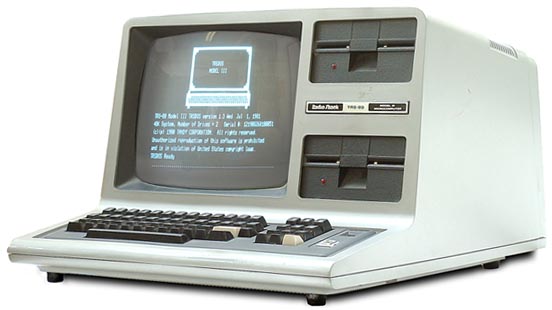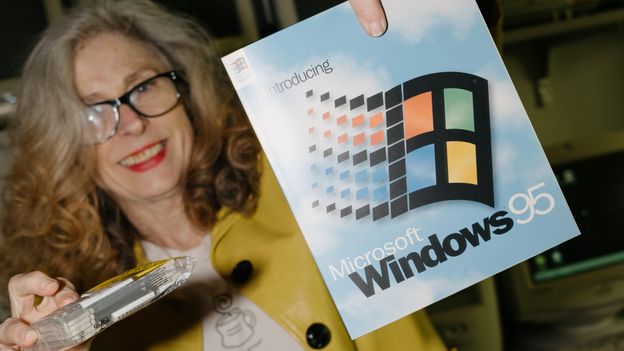The elevator was running Windows XP.
Clearly a extreme case of overengineering. A elevator has no business running more than a few microcontrollers.
It’s probably only the screen component that is running an old version of embedded windows.
Screen? In a elevator?
How else are you gonna show ads?
I hate that you are right.
Yes? That is not that unusual and it is mentioned in the third sentence of the article.
As I rode up to the 14th floor, my eyes were drawn to a screen built into the side of the lift.
Those screens can easily run on an integrated Raspberry Pi microcontroller, they dont exactly have complex graphics
RPi is not a microcontroller.
We are far away from the release of the Raspberry Pi if that screen is running an early version of Windows CE. Putting a PC in the elevator to drive the screen was probably the most cost effective solution.
Was but theres no reason to keep doing that
There’s not particularly good reason to stop doing it in that scenario either.
You have an offline technology stack in that elevator that has been doing the job correctly for 20 years. Why take on the expense and risk of changing things that aren’t currently broken?
It would be crazy if you are building new to resort to that stack, but for an established elevator, why bother?
Same for some old oscilloscopes at work. I’m not crazy about the choice but I can hardly suggest it would be practical to change it while the oscilloscopes still do their function.
I would say it’s a problem if the stack is online, but if it is self contained, the age of the software doesn’t make it a problem in and out itself.
New ones probably use something newer. The 20 year old elevator in a hospital will only be upgraded if something breaks.
That’s what I think too. And then I see “Their systems are built into everything around us”, which basically only applies to PCs and laptops. What is built into pretty much everything around us is GnuLinux.
What is built into pretty much everything around us is GnuLinux.
Many things, but far from that.
Not even GNU - just Linux.
Yeah yeah, something something GNU/Linux blah blah copypasta…
Qube cinema servers only got off XP in 2015. They’re still on 7 though.
In highrises with lots of stops and users, it uses some more advanced software to schedule the optimal stops, or distribute the load between multiple lifts. A similar concept exists for HDD controllers, where the read write arm must move to different positions to load data stored on different plates and sectors, and Repositioning the head is a slow and expensive process that cuts down the data transfer rate.
This requires little more than a 286. It’s an elevator. Responding in times measured in seconds. What kind of computations do you think are required here? Imaginary quaternion matrixes? Squared?
Yes, but if you have it as a Windows program it’s easier to configure on a screen with mouse and keyboard, change settings, display help files or give the source code to someone else to make changes or add features.
also it was probably not too expensive to grad a bog standard PC off the shelf and do it on that. I’ve see raspis in the wild doing tasks like that. and those will be outdated by the time they’re replaced too
But how else can it book requests for priority access, and verify the credit card for whoever booked the elevator?
But how else can it be safe to connect to the internet?
You need to be on-site to fix it anyway, just access the debug port.
I’m visiting my parents in my home country after many years of not being there. I’m hoping my dad’s old pentium 2 laptop is still around.
I think i still have a copy of this OS. Along with NT4.0 and various others. I hoard stuff like this.
I’m disturbed that an elevator is running a desktop OS. How did this happen? Did they never hear of microcontrollers?
Frighteningly, i worked as an admin at a hospitality wifi business that ran a windows box for dhcp duty. I would have to go o site, in the middle of the night, down to the basement of this hotel, and reboot the damn thing. It would die almost every week. Replaced with a linux server and never heard from them again.
My assumption would be that the display is not related to operating the elevator, but rather displaying information about businesses on the respective floors. I’ve seen those a fair few times, and since they run on isolated networks or even fully local, there’s little risk.
I could tell you the stories of W95 & XP that runs the medical world…
Instead of using old proprietary shit you could use Linux or *BSD with a vintage desktop environment and have a blast
Something I noticed is that basic users (someone using a fucking 30 y/o OS is definitely one) have an easier time with *nix because most “technical” people are overfitted and brainwashed to the Micro$uck ecosystem
If a system is extremely old you can use Alpine Linux with no desktop environment
Instead of using old proprietary shit you could use Linux or *BSD with a vintage desktop environment and have a blast
I’m not sure you get it.
The CnC operator, for instance, didn’t choose windows; they chose the CnC machine because it’s best at making wood into shapes they need. It came with ‘a computer’ to control it. That computer had a desktop and an icon.
You see how CHOOSING THE OS wasn’t on the list? They chose - and fucking get this - A CNC MACHINE out of a printed catalogue with a 30-word write-up. The number of CnC machines with a Unix or Linux or BSD or BeOS install on them in 2000 was - drumroll please - zero.
If you want to fix that, you’re going to need a time machine. Remember to bring your flag with you.
Go learn about ReactOS, too.
Dude, you clearly have no idea about proprietary and specialised hardware. Which is fine, but you’re choosing to attack people from your ignorance.
Don’t do that
Clearly you’ve never seen the concept of Emulation, because that’s how you run ancient apps dumbass
If your workplace needs special windows 9x software and you haven’t managed to work some form of virtualized environment in place of 30+ years old hardware you should be fired
Newsflash do you really think banking COBOL systems run on fucking IBM mainframes from 1962? They’re all software emulated.
-
IBM still manufactures new mainframe computers and they will actually support your ancient mainframe from 1962 (assuming you’re still paying your licensing haha)
-
the vast majority of Windows 7 and older computers that are still in production are attached to specialized hardware or industrial equipment. Stuff that costs many hundreds of thousands or millions of dollars.
-
emulating older OSes doesn’t really solve the problem at all because the actual concern is security, not hardware issues.
-
emulation isn’t perfect, especially with passthrough. Especially when you’re trying to pass through an ancient connector through a virtual adapter (show me a modern computer with SCSI)
I could keep going but that’s all I have enough care to do right now
Industrial emulation is easy to do, a sandboxed and controlled VM won’t die from hardware faults like a hunk of shit from 1993
Also there are NEW computers made specifically for this particular purpose, they even have ISA buses and shit
I don’t understand why lemmy is living in la la land, the moment you go against the narrative you’re brigaded to shit
Yes, y’all do be in fact wrong
Bonus: IBM sells emulation packages for migration to new architectures. IBM probably knows better than the lot of us.
-
we’re talking hardware and software you fucking walnut.
You gonna emu an ISA slot?
We’ve got multiple tools still on Windows 2000, happily running production. They’re on an airgapped network though, so no issues.
At my old workplace, there was numerous XP machines still going. They were running old machine equipment, and basically served as a controller for the entire machine.
As it turns out, it was cheaper to keep these XP stations, instead of buying a completely new Hydrolic press, or whatever it was running, which cost several hundred of thousands of dollars.
One day one of these computers stopped working, and we immediately tried to get the software to work on a brand new W10 replacement. Took us a week of drivers hell, until we eventually went to the basement, found an exact replica, and swapped the HDD over.
The company, making these heavy machineries, went bankrupt in the early 2000s, and there was literally no way of getting the software to run on anything besides that original box.
There’s still things like that on my workplace today. I think there’s some older, rarely used CNC with Win98 on the controller. We just keep spares around when they break, but that’s cheaper than replacing the whole machinery. Also there’s some XP stations running software for an industrial machine which would cost quarter of a million to replace. Some of those need access to network drives and such but they live in a strictly isolated VLAN.
And, as far as I’ve told at least, there was no option at any point to upgrade just the computers on those things. It’s always the whole assembly line or whatever they’re connected to. There’s not many companies willing to throw hundreds of thousands every 3-5 years to replace perfectly working equipment.
It’s funny, because this scenario actually happened in our CNC hall.
The guys over there were working with SolidWorks and Mastercam. I never really got too involved with their work, other than installing the software remotely for them.
It could very well have been a CNC machine that this procedure was about. I just know that they had all kinds of equipment in there, along with a hydrolic press, which peaked my interest the most because of a certain Finnish youtuber haha.
there’s some older, rarely used CNC
Me over here with a dirty mind 100% positive that I’m not using “CNC” the same way you are. I don’t know what your way means, but my way is more fun.
CNC—computer numerical control, where a computer makes the cutty/smushy/printy parts move through meatspace.
CNC—computer numerical control, where a computer makes the cutty/smushy/printy parts move through meatspace.
Yup. Take backups, have spares, and keep it off the Internet and it’ll work just fine.
Pro tip, you can get IDE to CF adapters if you want to put an SSD in those old machines to really see them fly. Just be aware that they don’t have nearly as good write durability as a real SSD, so keep write heavy operations on the HDD.
You can get industrial grade CF cards that use SLC memory. They have much better write endurance than normal CF cards.
Yeah, and as long as these things never touch the internet, there really isn’t an issue.
There are third parties that create new software for old industrial machines for this exact reason.
I set up a 32 bit Windows 7 VM so my dad could keep using his old drawing program that was built for Windows 3.11.
It was the last version of Windows to support 3.11 compabillity.
Works well.
lol what drawing program?
Macrografx Designer 3.1:
Just a note: Windows software for controlling hardware is highly likely to assume a)direct access to the hardware (sometimes mediated thorough ancient APIs and assuming the existence of defunct expansion slots) and b) assume meatspace time can be counted using OS timing ticks (which get stretched out as modern VMs timeshare with other processes underneath the virtulized hardware). It is awfully tough to replace them sometimes.
Yeah, I suspect you gotta do something similar to what McLaren did when the special mid 90s computer they used for the F1 got too hard to replace as they broke, they built a new computer interface that was compatible with modern computers and allowed them to interface with the car
I’d like a law that software / hardware companies who file for bankruptcies must release the source / files for their tech to an open source repository.
If you are a big company there are often ESCROW agreements for things like this. I have encountered the “data dumps” from time to time and whilst it’s “better” it’s not ideal. Half finished documentarian, virtual machines of mis-configured OS installs… it’s almost as if it was just a straight copy of the development environment as it was just as they made the final version of the software…
But it’s better than nothing.
Main issue I can see with this forcing open source would be libraries and frameworks licensed from others who would likely still be in business and wouldn’t agree to those parts becoming open sourced. See also WinAMP https://www.theregister.com/2024/10/16/opensourcing_of_winamp_goes_badly/
That idea often comes up in these discussions and I’ve never really had an argument against. Best I got is that parts of that software may have moved to more modern stuff that was purchased by another company. But that’s a damned thin excuse not to implement this.
I like that idea bit it’ll never fly. That software is an asset. A bankrupt company needs every asset to be sold to cover as much percentage of their debt to their vendors as possible. I’ve been in a company that went bankrupt and I’ve been the vendor of a company that went bankrupt. Being the vendor was the harder experience.
I’m sure it makes the bean counters happier to have another asset valued at X amount, but in practice the software will just be locked in some vault where it won’t do anyone any good.
Its an instance where the number on the screen doesn’t actually correspond to any useful economic activity.
Stuck?
“Stuck”
Imagine being stuck using something that works for 30 years.
And now you got a virus and it doesn’t work anymore.
You can protect yourself from that with airgapping and backups. The bigger issue is probably that it’s becoming increasingly hard to source parts for such old hardware.
Right? If it still works then it still works.
If the article was talking about anything other than tech/software, we’d be praising its longevity.
It really depends what its used for.
Anything that is public facing would never work without constant maintenance and upgrades, be it a computer OS or some complex piece of hardware.
I mean, you could read the article. Many users are unhappy with the performance or reliability.
And a lot of people are actually stuck because the Windows XP/7 machine is attached to industrial equipment that costs an unbelievable amount of money or is just impossible to replace.
If not for DX10 and above not even existing on it, afaik, I’d still be using XP. That was the best iteration until they forcibly made you have to upgrade if you played games (especially if you wanted to play Halo on PC).
especially if you wanted to play Halo on PC
I still giggle that after years and years of Halo 3+ being a console exclusive, and Halo 2 sucking on Windows for years*, the entire Halo collection now has a Gold rating on Linux. I have very specific memories of being annoyed for years that the most prestigious Microsoft game doesn’t work on a Microsoft gaming platform (Windows).
*God damn does Games for Windows Live suck
I know it’s not exactly the point of the article but for a lot of things, I reckon a good amount of ‘innovation’ was pretty pointless. I personally don’t think I ever needed anything that Office 2003 can’t do… (Of course I don’t use any MS office to begin with but you get the point)
I’ve been trying tk get family to switch to Linux, but some are irrationally attached to MS Word. I wonder if Office 2003 will run in Wine?
I’ve heard LibreOffice has settings that make it look like Word
I’ve had success with Office 2010 under Wine.
https://appdb.winehq.org/objectManager.php?sClass=version&iId=18487
Everything beyond the Dewey decimal system is/was pretty unnecessary, imo. We created a way to organize and “quickly” locate information stored in a physical format.
The near complete lack of manual labor has had many long reaching effects on society.
I type this on my brand new flagship phone…
=Let(), Lambda and Regex were good additions to Excel imo
Whoa I had no idea of those functions. I just checked the documentation and I already know a hundred places I could use those.
there’s a word for those people: awesome
windows xp was peak; running anything before xp is legendary
I ran Linux 1994ish. Amiga OS before. Amstrad CPC 464 before. A friend ran Sinclair Z80, that was the first system I had access to.
aside from radio shack and texas instruments that i used at camp, i think i was sadly too young to do anything but windows 3.1 :( our first computer was a tandy sensation in the early 90s and i didn’t really play with linux until maybe the mid 2000s
except for playing with apple IIe and radio shack computers through school and camp, that is.
TRS-80 and TI 99/4A presumably?
i’m pretttyyyyy sure this one is the one we had at camp :)

Idk, it was horrendously insecure, would freeze a lot, and missing creature comforts like window tiling.
If they kept refining Win7 it would’ve been great.
Idk, it was horrendously insecure, would freeze a lot, and missing creature comforts like window tiling.
It was significantly more secure than it’s DOS-based predecessor of the time, Windows ME (that’s a whole other rabbit hole; if you wanna talk insecure and buggy as fuck - look no further). That’s what people don’t realize, they look at the past through a modern lens. You gotta look at it from the time it was released. There’s a reason mainstream consumer-focused Windows editions dropped DOS and moved to the NT kernel. XP was the first real consuner version of Windows based on XP.
If they kept refining Win7 it would’ve been great.
They did, it was called “Windows 8” and Nobody liked it.
But before ME there was Windows 2000, with its particularly gorgeous spin of the classical design, and other than appearance - being kinda same as XP, but faster.
XP was the first real consuner version of Windows based on XP.
On NT you mean, and no, W2K was a consumer system.
XP was the first real consuner version of Windows based on XP.
On NT you mean
Whoops! Yes, NT.
But before ME there was Windows 2000, with its particularly gorgeous spin of the classical design, and other than appearance - being kinda same as XP, but faster.
[…]
and no, W2K was a consumer system.
W2K was most definitely not built with consumers in mind; the base edition was “Professional” and was meant to be a workstation OS. It was a bit of an oddball in that a not-insignificant amount of power users preferred it at home over 98/Me - but it was a business-oriented system first and foremost. XP added a lot of features over 2000, including more consumer-oriented tools and applications. That’s why I specified XP as “the first real consumer version”.
Personal anecdote: When I was in jr high, the “family PC” was a Toshiba laptop loaded with W2K, and compared to the W98 system we had before, 2000 was certainly not meant for “regular” home users. That’s what Me was supposed to be, but we all know how that went… IMO, I’m almost certain that the downfall of Me, paired with W2K being as good as it was at the time, was part of the driving force for MS to base future consumer versions on the NT kernel.
I’m not looking at it through a modern lense. It was very insecure at the time, too. I worked in a PC repair shop and at the time that business was a money printer in terms of getting rid of endless malware.
XP was not the first consumer version based on NT.
Although yes, the DOS versions were worse.
They did, it was called “Windows 8” and nobody liked it.
I would not consider Win8 a “refinement” of Win7 lol, they changed the entire UX.
But this article is talking about people running Windows 7 today, so comparing current actions through a modern lens is entirely valid
Technically, they did, and it was not great.
Stuck or preferred choice?
Trapped using software they needed to buy once, vs rent?
Yes, stuck. There are enourmous problems with different institutions having to use ancient PCs because the software doesn’t work on modern ones, be they electron microscopes, hospitals or industrial machinery, causing e.g. enourmous security issues. This is one of the most important reasons why FOSS and why making FOSS software mandatory in government contracts is so important.
Also how come people can’t read the fucking article before commenting?
I’m a bit depressed that I finally need to upgrade my last windows 7 machine. It looks like it’s 10 for me now :-(
https://www.fedoraproject.org/ https://linuxmint.com/ https://archlinux.org/ https://www.debian.org/ https://elementary.io/ https://system76.com/pop/
There are many safe open source options. If you need help there are ample resources available. If you want to you can also DM me.
Yeah, I’m well aware. But how much of my time would it take to get a bunch of windows software running smoothly on Linux?
I do appreciate the offer of personal help, that’s an extremely generous offer to an internet stranger. Sincerely, thank you!
Depends on what software. Anything that happens in the browser works. A lot of other software can be run using Wine. There is some software which still has problems especially when using USB ports as serial ports etc. and a lot of subpar software (un)fortunately just doesn’t work because of it being badly programmed.
Nuclear silos… is that early dos system I believe?
As long as things are not connected and not trying to add newer stuff , what’s the problem?
I would totally hang with that lady in the thumbnail lol
My wife still using windows 2000 on her laptop. Still boots and runs. She just doesn’t connect it to the internet.
Depends if the photo was taken recently or at the time W95 was around…





















